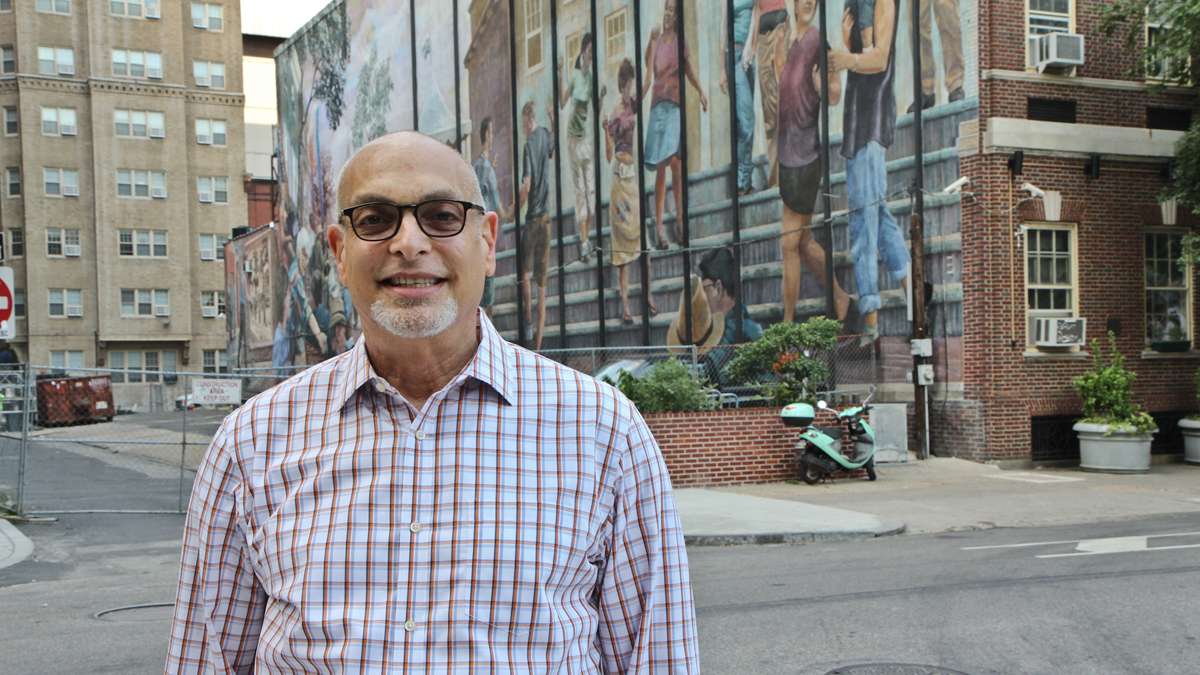Aging LGBT community pushes for culturally competent care
Listen
Heshie Zinman is shown in 2013 in front of the William Way LGBT Community Center at Spruce and Juniper streets in Philadelphia. (Kimberly Paynter/WHYY, file)
Health disparities in the LGBT community persist. And by 2030, the 65-and-over LGBT population in the Delaware Valley is expected to double.
At a meeting Thursday stakeholders pushed to improve health care for aging LGBT people.
LGBT seniors are more likely to grow older without a partner and to live alone. They’re less likely to have children to help them when in need. A fifth of LGBT seniors have no one at all to call during a crisis.
That means many LGBT seniors will rely primarily on formal health care services, said the founder of the advocacy group LGBT Elder Initiative, Heshie Zinman. To keep up, he said, health care providers and social service agencies need to be culturally competent to accommodate LGBT seniors.
“Culturally competent looks like walking into an organization that serves the public and seeing images of me and my family, me and my husband. Intake forms in doctors’ office and social service agencies that ask about gender identity and sexual orientation, that are gender neutral. Feeling safe and respected in the services and supports that I need to access,” Zinman said.
Teresa Osborne, Pennsylvania secretary of aging, said increasing representation of elderly LGBT people in groups considering policy issues in the state is important. Zinman was just appointed to the Governor’s LGBT working group headed by Dr. Rachel Levine, the state’s physician general, to evaluate a wide range of issues, including housing and data collection. Gender identity and sexual orientation aren’t always among the tracked parameters.
Zinman also represents the LGBT voice around aging issues under Act 64. The law, passed last year, establishes a council to study long-term care in the state.
Osborne said her own department will soon undergo cultural competency training.
WHYY is your source for fact-based, in-depth journalism and information. As a nonprofit organization, we rely on financial support from readers like you. Please give today.

